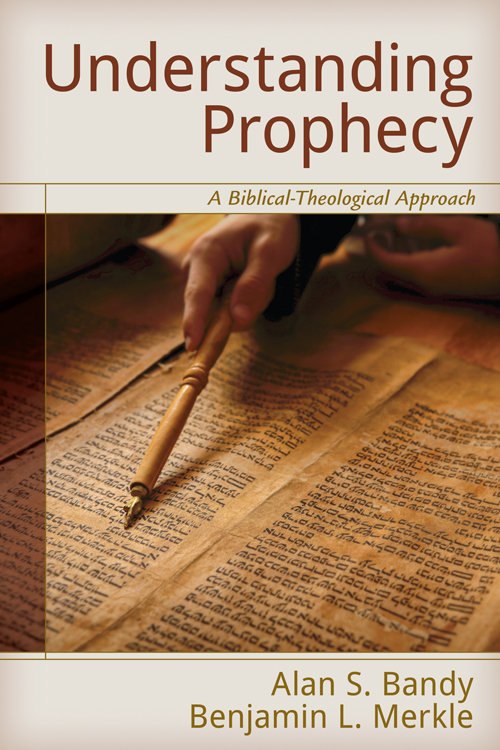A Premillennial Reading of Hebrews (2)
A New Covenant
After quoting Jeremiah 31 the author is careful to refer to “a new covenant” (Heb. 8:13), but nobody doubts that the definite article is required in its other mentions in the book (Heb. 9:15; 12:23). Those interpreters who insist that the New covenant is not made with the Church, or that the Church is only tangentially related to the New covenant are, to my mind, once more in a hole of their own digging. To a man these writers believe that Hebrews is addressed to Christians (it matters not if they claim Hebrew Christians are the recipients).[1] Therefore, they believe it is written to the Church or a segment of it (whatever that means). If that is so then Christians are under the New covenant according to Hebrews, and Christ is our New covenant High Priest[2] (Heb. 2:17; 3:1; 4:14-15; 8:1, 6)![3] This tallies with the natural reading of 1 Corinthians 11:23-26 and 2 Corinthians 3:1-18. In the Bible, you can’t be represented by a priest unless the priest is related to a covenant. Moreover, you can’t call Christ’s death on the cross a sacrifice unless you connect that sacrifice to a covenant.
After giving a brief description of the earthly tabernacle and the limitations connected with its service (Heb. 9:1-10), the author strikes a contrast with “the greater and more perfect tabernacle not made with hands, that is, not of this creation” (Heb. 9:11), we then read this:
For if the blood of bulls and goats and the ashes of a heifer, sprinkling the unclean, sanctifies for the purifying of the flesh, how much more shall the blood of Christ, who through the eternal Spirit offered Himself without spot to God, cleanse your conscience from dead works to serve the living God? – Hebrews 9:13-14.
This verse needs some exploration because there is a great deal within it. It begins by referring to three OT sacrifices, all of which were designed to provide cleansing in order to serve Yahweh. But that cleansing itself was only skin deep, it did not penetrate to the conscience (cf. Heb. 9:9). But the “blood of Christ” is different. It was offered in heaven (Heb. 9:11) “through the eternal Spirit” (Heb. 9:14). What does this strange phrase mean? The “eternal Spirit” is plainly the Holy Spirit, through whom Jesus was divinely enabled and upon whom He relied[4] (see esp. Jn. 1:33; Lk. 4:1, 14, 18, and implied in e.g., Matt. 3:1; 12:31-32; Jn. 20:22). But here the emphasis is not upon Jesus’ ministry but upon His sacrificial death. The Spirit of God both upheld Jesus and raised Him from the dead (Rom. 1:4; 8:11). The onus in this context is upon the presentation of Jesus as the sacrificial animal offering Himself “without spot to God” (Heb. 9:14). His offering was Himself (Heb. 9:25-26); He too was the offeror – the High Priest (Heb. 9:25). Then also, of course, He is the Mediator of the New covenant (Heb. 9:15; 12:24) so that Jesus is the main participant in all three aspects of the covenant rite; offeror, sacrifice, and mediator/intercessor of the covenant (Heb. 7:25); the one who has authority to dispense its blessings.[5]
As indicated above, Jesus’ death as an offering (the “Lamb of God” – Jn. 1:29) was a sacrifice to God (Heb. 9:26; 10:12); a New covenant sacrifice (cf. Heb. 10:26 with 10:29). Therefore, if the Church is to be connected to Christ’s sacrificial death (Rom. 6:5-6), it is ipso facto connected to the New covenant (1 Cor. 11:25).[6]
The last part of the passage also calls for our attention, because it says that our service to God springs from this New covenant sacrifice. Hence, we have an overlap with Paul’s understanding of his teaching ministry as being a New covenant ministry (2 Cor. 3:3-6).
Chapter 9 ends with a reference to the second coming: “To those who eagerly wait for Him He will appear a second time, apart from sin, for salvation.” (Heb. 9:28). This reminds us of the strong prophetic burden of the book. The “salvation” which the returning Jesus brings is a completed salvation, rather like the way Peter employs the term in 1 Peter 1:5, 9-10. But Hebrews must be understood to equate “salvation” with the coming “rest” of Hebrews 4:1, 3, 9, and 11; “the world to come” of Hebrews 2:5. This can be accurately spoken of as the New covenant Kingdom.
[1] See Christopher Cone, “The New Covenant in Hebrews,” in An Introduction to the New Covenant, Christopher Cone, editor, 237. Cone advocates well for the view that only Israel is given the New covenant and that “no new teaching about the content of the NC” is found in Hebrews (Ibid, e.g., 255, 264, 268). He writes, “It would not be improper to say that the covenant has been validated, as long as there is no already not yet element read into the covenant.” (Ibid, 254). Unfortunately, I am not convinced by the arguments. See, e.g., below on the link between the High Priesthood of Jesus and the “better promises” with the New covenant itself. Also, the “you” of Hebrews 12:4, 7, 8, 17 clearly refers back to the “us” of 12:1 who are to “run with endurance the race that is set before us,” and forward to the “you” who have come to Mt. Zion (Heb. 12:22), to “the general assembly and church of the firstborn who are registered in heaven” (Heb. 12:23). The very next verse brings us “to Jesus the Mediator of the new covenant” (Heb.12:24). The relationship of the Church to the New covenant is made by the author himself. The style of argumentation has to kept in mind when looking for answers. See e.g., Lane, Hebrews 1 – 8, lxxvii-lxxxiv.
[2] It is perilous to break the connection between Christ’s High Priesthood for us and the [New] covenant He mediates.
[3] Compare especially Hebrews 8:1 with 8:6: “We have such a High Priest, who is seated at the right hand of the throne of the Majesty in the heavens” and “But now He [Jesus as High Priest] has obtained a more excellent ministry, inasmuch as He is also Mediator of a better covenant, which was established on better promises.” In Hebrews 8:1-6 it is Jesus’ function as High Priest that is in view, right after which the New covenant quotation from Jeremiah 31 is given.
[4] On this subject see Gerald F. Hawthorne, The Presence and The Power: The Significance of the Holy Spirit in the Life and Ministry of Jesus, Eugene, OR, Wipf & Stock, 2003, and J. Douglas MacMillan, Jesus, Power Without Measure: The Work of the Holy Spirit in the Life of Our Lord, Darlington, Evangelical Press, 2015.
[5] This being the case, I believe the view that translates diatheke as “covenant” instead of “testament” in Heb. 9:16-17 is correct.
[6] “For Hebrews the church lives under the sign of the new covenant.” – Peter Stuhlmacher, Biblical Theology of the New Testament, 533.


1 comments On The Enigmatic Book of Hebrews (Pt. 3)
I love this article, but considering what you’ve concluded, with which I certainly have no disagreement, is it not then difficult to see the current new covenant recipients (Jews and Gentiles) as being separated from those future New Covenant recipients, who enter this covenant when as Paul puts it: “then all Israel will be saved”? And does this position then not support what Paul tells us in Ephesians concerning “One new man” and cause it’s meaning to be all inclusive of God’s people who will enter into this New Covenant? Given all of this, are not pre-Trib Dispensationalists at odds with what is meant in Christ’s bringing in of this Covenant? Am I missing something here?